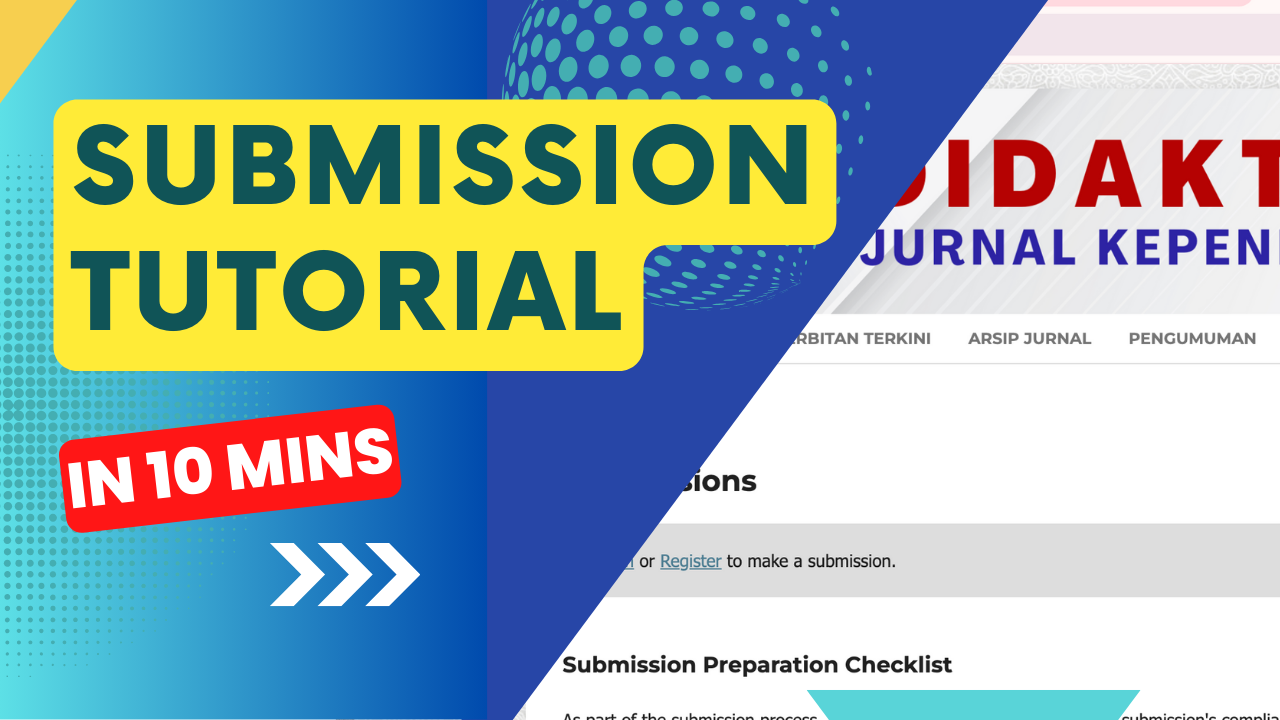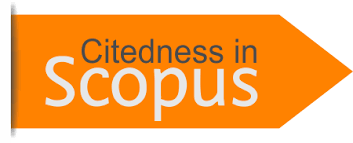Strategies to Increase Teacher Commitment: A Study of The Influence of Emotional and Intellectual Intelligence with The Mediation of Job Satisfaction
Abstract
Education is a conscious effort that is deliberately planned to achieve a predetermined goal. Education really determines the progress and quality of a nation, therefore the potential of teachers as a component of human resources needs to be developed so that they can carry out their functions optimally. This research was conducted to find out what influences teachers' affective commitment. The research aims to analyze the influence of emotional intelligence and intellectual intelligence on teachers' affective commitment with job satisfaction as a mediating variable in MTs. Bungah Gresik, The type of research used in this research is quantitative causality research. The population and sample in this study were MTs teachers. Bungah Gresik, totaling 106 teachers.The results of the research show that emotional intelligence has a significant positive effect on affective commitment with a t-statistic value of 3.248 and a p-value of 0.001, intellectual intelligence has a significant positive effect on affective commitment with a t-statistic value of 3.917 and a p-value of 0.000, emotional intelligence has a significant positive effect on job satisfaction with a t-statistic value of 5.214 and a p-value of 0.000, intellectual intelligence has a significant positive effect on job satisfaction with a t-statistic value of 7.087 and a p-value of 0.000, job satisfaction has a significant positive effect on affective commitment, emotional intelligence has a significant positive effect on commitment affective through job satisfaction with a t-statistic value of 3.344 and p-value 0.001, and intellectual intelligence has a significant positive effect on affective commitment through job satisfaction with a t-statistic value of 3.025 and p-value 0.002. And the mediating variable job satisfaction cannot mediate between emotional intelligence and intellectual intelligence on the affective commitment of teachers at MTs. Assa'adah Bungah with a t-statistic value of 2.737 and a p-value of 0.006.From the results of the research, it is hoped that MTs Bunga Gresik teachers will increase cooperation between teachers and be sensitive to the surrounding environment in order to help harmonize the existing organizational structure. Apart from that, further research is expected to use other mediating variables such as work motivation due to job satisfaction.
Metrics
References
Argon, Bill, and Yuyuk Liana. “Kecerdasan Emosional Terhadap Komitmen Organisasi Melalui Kepuasan Kerja.” Jurnal Akuntansi Dan Investasi 4, no. 1 (2020): 1–14.
Hoesny, Mariana Ulfah, and Rita Darmayanti. “Permasalahan Dan Solusi Untuk Meningkatkan Kompetensi Dan Kualitas Guru : Sebuah Kajian Pustaka.” Scholaria : Jurnal Pendidikan Dan Kebudayaan 11, no. 2 (2021): 123–32.
Marhaban, and Sanusi. “Metode Tahfiz Pada Sekolah Islam Terpadu Muhammadiyah Langsa” 9, no. 1 (2023): 81–88.
Mujianto, Gideon, Pahlawansjah Harahap, and Djoko Santoso. “Peran Kecerdasan Spiritual, Intelektual, Dan Komitmen Afektif Bagi Peningkatan Kinerja Sdm.” Jurnal Riset Ekonomi Dan Bisnis 14, no. 1 (2021): 64. https://doi.org/10.26623/jreb.v14i1.3569.
Nursyam, Aisyah. “Peningkatan Minat Belajar Siswa Melalui Media Pembelajaran Berbasis Teknologi Informasi.” Ekspose: Jurnal Penelitian Hukum Dan Pendidikan 18, no. 1 (2019): 811–19. https://doi.org/10.30863/ekspose.v18i1.371.
Oktaviani, Ni Made Ita, and Ida Bagus Surya Manuaba. “Kontribusi Kecerdasan Emosional Dan Motivasi Kerja Terhadap Komitmen Kerja Guru.” Jurnal Mimbar PGSD Undiksha 9, no. 1 (2021): 116–26.
Pala’langan, Alvin Yuwono. “Pengaruh Servant Leadership, Disiplin Kerja, Dan Kepuasan Kerja Terhadap Kinerja Guru.” Jurnal Akuntabilitas Manajemen Pendidikan 9, no. 2 (2021): 223–31. https://doi.org/10.21831/jamp.v9i2.38875.
Putra, Yanuar Surya. “Teori Perbedaan Generasi” 9, no. 1952 (2016): 123–34.
Rahmawati, Aliyah. “PENGARUH KECERDASAN INTELEKTUAL, KECERDASAN EMOSIONAL DAN KECERDASAN SPIRITUAL TERHADAP KINERJA KARYAWAN DENGAN KEPUASAN KERJA SEBAGAI VARIABEL INTERVENING DI UTD PMI KOTA MALANG.” Jurnal Ekonomi Manajemen Dan Bisnis 3, no. 1 (2022): 58–72.
Ramadhan, Rahmat, Yonathan Pongtuluran, and Sri Wahyuni. “Analisis Pengaruh Kepemimpinan Dan Disiplin Serta Kompetensi Terhadap Kepuasan Kerja Pegawai Dan Komitmen Organisasional.” Jurnal Manajemen 12, no. 2 (2020): 306–16.
Shafira Hasan, Balqis, and Suhermin. “Pengaruh Kepemimpinan, Disiplin Kerja, Dan Kepuasan Kerja Terhadap Komitmen Organisasi Suhermin Sekolah Tinggi Ilmu Ekonomi Indonesia (Stiesia) Surabaya,” 2020.
Soelistya, Djoko, Husni Mubarok, Heni Agustina, and Adiba Fuad Syamlan. “Peran Mediasi Komitmen Guru Terhadap Kinerja: Pengaruh Budaya Organisasi, Dan Motivasi.” BALANCE: Economic, Business, Management and Accounting Journal 20, no. 1 (2023): 48–62.
Suharsono, Judi. “Pengaruh IESQ (Intelektual, Emosional And Spiritual Quotient) Terhadap Komitmen Afektif,” 2018.
Sukirno, N H, M Idris, and M Hamzah. “Pengaruh Kecerdasan Emosional, Kecerdasan Intelektual, Lingkungan Kerja Terhadap Kepuasan Kerja Pegawai.” Jurnal Magister Manajemen Nobel Indonesia 2, no. April (2021): 294–301.
Sutra Dewi, Aminar, Putri Lestari Ramadhani, Sekolah Tinggi, and Ilmu Ekonomi Kbp. “Pengaruh Kecerdasan Emosional, Kecerdasan Intelektual Dan Kepuasan Kerja Terhadap Kinerja Karyawan Bagian Billman Pada PT. PLN (Persero) Indarung Padang.” Jurnal Pundi 05, no. 02 (2021): 207–24. https://doi.org/10.31575/jp.v5i2.347.
Tiani, Yuki Andes, and Parmin. “Pengaruh Kecerdasan Emosional Dan Keadilan Distributif Terhadap Komitmen Afektif Melalui Kepuasan Kerja Sebagai Variabel Intervening (Studi Pada Guru TK Di Kecamatan Kebumen).” Jurnal Manajemen Indonesia, 2021, 1–6.
Turnip, Helena, Benyamin Situmorang, and Zulkifli Matondang. “Pengaruh Kecerdasan Emosional, Persepsi Guru Tentang Komunikasi Interpersonal Kepala Sekolah, Dan Kompensasi Terhadap Komitmen Afektif Guru TK Kecamatan Medan Perjuangan.” Jurnal Usia Dini 4, no. 2 (2019): 39–54.
Widiatna, Alexius Dwi. “Transformasi Pendidikan Calon Katekis Dan Guru Agama Katolik Di Era Digital.” JPAK: Jurnal Pendidikan Agama Katolik 20, no. 2 (2020): 66–82. https://doi.org/10.34150/jpak.v20i2.280.
Copyright (c) 2024 Lailatul Fitriyah Lailatul, Rahmat Agus Santoso, Eva Desembrianita

This work is licensed under a Creative Commons Attribution 4.0 International License.
Dengan mengirimkan naskah artikel, berarti penulis setuju dengan segala kebijakan yang ditetapkan oleh jurnal dan penerbit.
Penulis menyatakan bahwa:
- kebijakan ini telah diketahui dan disetujui bersama oleh semua penulis;
- naskah artikel belum dipublikasikan secara resmi sebelumnya di media ber-ISSN atau ber-ISBN yang terdaftar, kecuali dalam bentuk abstrak atau sebagai bagian dari materi kuliah, atau skripsi/tesis/disertasi yang tidak diterbitkan;
- naskah tidak sedang dalam proses editorial dan dipertimbangkan untuk publikasi di tempat lain;
- publikasi naskah ini telah disetujui oleh semua penulis, institusi afiliasi penulis, otoritas yang bertanggung jawab, dan lembaga di mana kegiatan telah dilakukan;
- naskah berisi materi yang aman dari pelanggaran hak cipta;
Perjanjian Hak Cipta dan Lisensi
- Penulis memiliki hak cipta dan hak kepemilikan lainnya yang terkait dengan artikel.
- Penulis memiliki hak dan diizinkan untuk menggunakan substansi artikel untuk karya-karya penulis berikutnya, termasuk untuk keperluan bahan/materi kuliah dan buku.
- Penulis menyerahkan hak publikasi pertama kepada jurnal dengan di bawah Lisensi Creative Commons (CC BY 4.0).
Pernyataan Lisensi CC BY 4.0
Anda diperbolehkan:
- Berbagi — menyalin dan menyebarluaskan kembali materi ini dalam bentuk atau format apapun;
- Adaptasi — menggubah, mengubah, dan membuat turunan dari materi ini untuk kepentingan apapun, termasuk kepentingan komersial.
Pemberi lisensi tidak dapat mencabut ketentuan di atas sepanjang Anda mematuhi ketentuan lisensi berikut ini.
- Atribusi — Anda harus mencantumkan nama yang sesuai, mencantumkan tautan terhadap lisensi, dan menyatakan bahwa telah ada perubahan yang dilakukan. Anda dapat melakukan hal ini dengan cara yang sesuai, namun tidak mengisyaratkan bahwa pemberi lisensi mendukung Anda atau penggunaan Anda.
- Tidak ada pembatasan tambahan — Anda tidak dapat menggunakan ketentuan hukum atau sarana kontrol teknologi yang secara hukum membatasi orang lain untuk melakukan hal-hal yang diizinkan lisensi ini.






.png)








